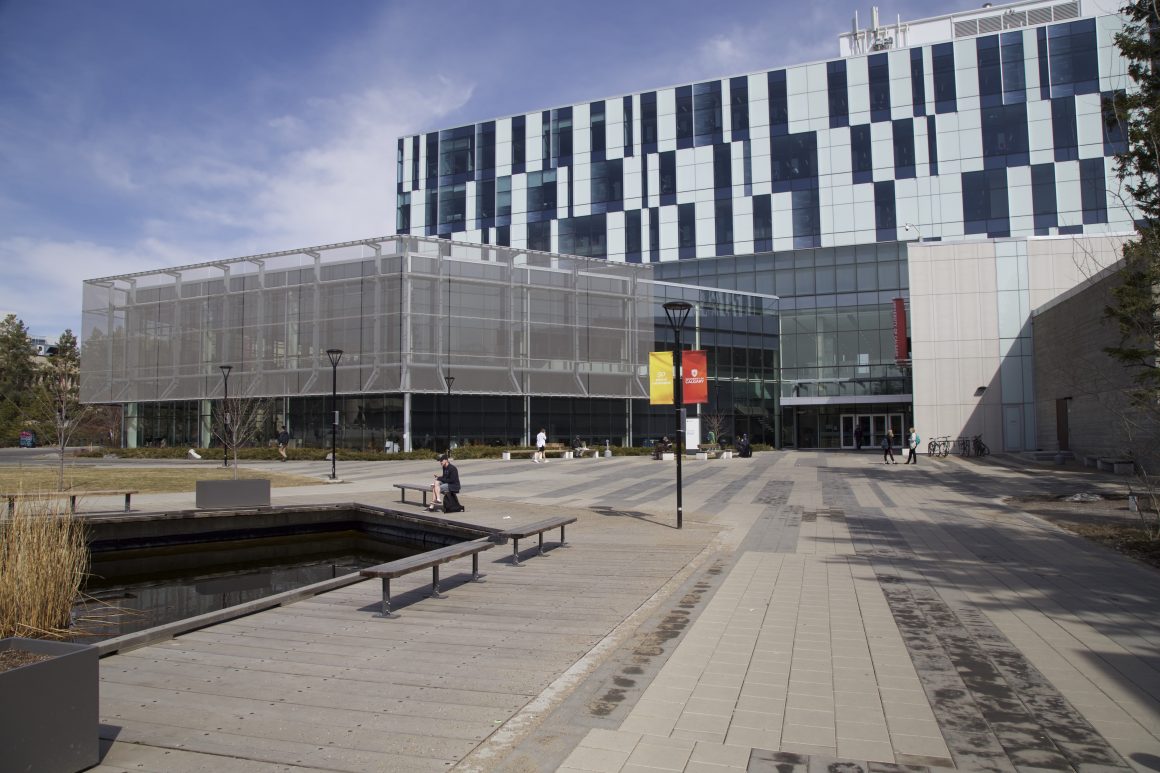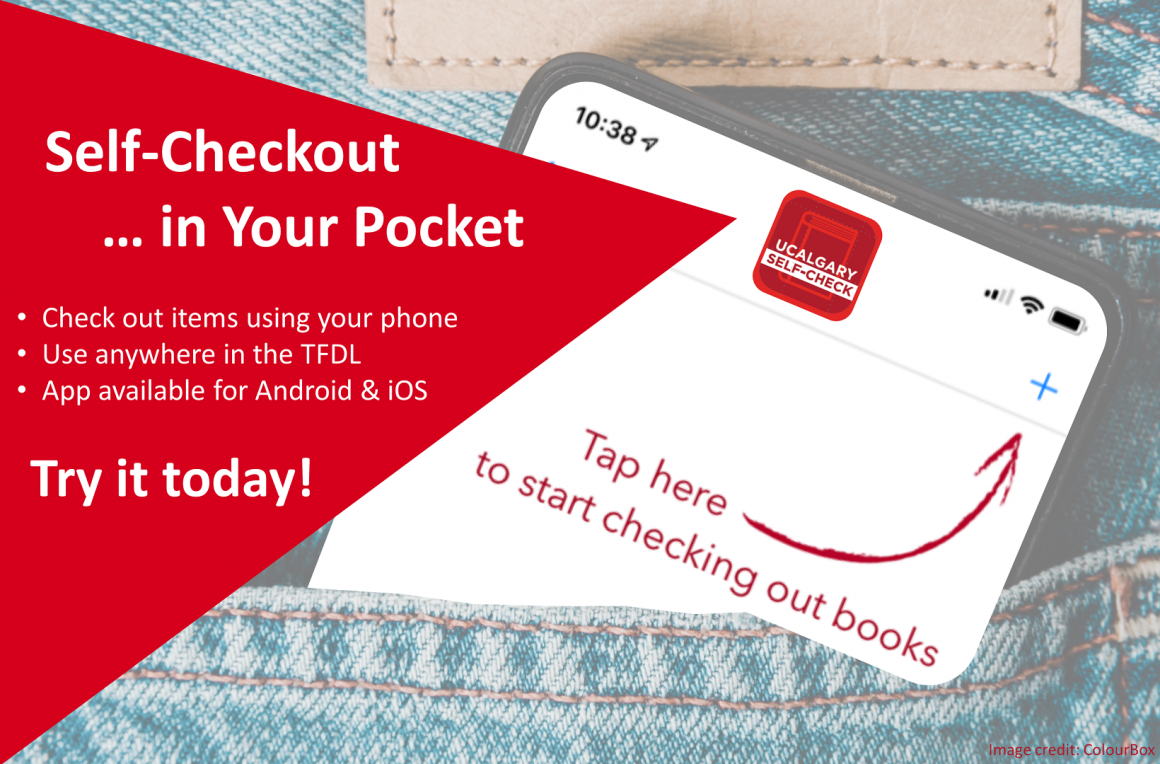
Library rolls out new student- and digital- friendly features
By Kristy Koehler, August 27 2019—
If you’ve been in the Taylor Family Digital Library lately, you might have noticed something new — big blue kiosks. These are the library’s new self-serve kiosks for reserve materials and are part of a few new initiatives to make the library more student- and digital-friendly.
Sixteen self-serve kiosks have been set up in the TFDL and branch libraries — exceptions are the Health Sciences Library and the Doucette Library. Items in these easy-to-use kiosks are available to borrow for a two-hour loan period.
Material will be arranged in alphabetic order inside the kiosk by course name and then course number. Students can insert their UNICARD into the machine to unlock the door, then grab the item and walk away. When finished, the book is returned the same way — scan the card, open the door, put the book back. Automation comes with a downside though — the kiosk knows when you’re late. A $3 per item per hour fine applies.
Having self-serve kiosks represents increased convenience for students, said Claudette Cloutier, Associate University Librarian.
“In the past, when our desk shut down, you lost access to the reserve materials overnight,” she said. “So, now, when we’re in our 24-hour open period you will still be able to access reserve readings.”
Reserve readings are placed on hold at the request of a professor for a particular class, saving students money should they not wish to purchase the textbook. The new self-serve sysem is intended to make it easier for students to access these materials.
Books will also be easier to find on the shelves this year. The library catalogue now has a ‘Locate’ button. If you search for material online and it’s physically available in the TFDL, just click the button to find out what floor it’s on and what stack it’s in. As an added bonus, there is even a map of the physical location available to view.
“The last couple of years people have commented on their inability to locate material,” said Cloutier.
A map that’s accessible on a digital device should help, as, she adds, “a lot of students now live in the digital environment.”
In response to that digital environment, the library also has a new app — the UCalgary Self Check app. While the self-checkouts were easy, the app is even easier.
“You can actually sign your book out with your phone,” said Cloutier.
Students can download the app on Apple or Android, sign in, find a book on the shelf and then use the app to scan the book’s barcode. The app is only up and operating in the TFDL but Cloutier says she’s hopeful it will be rolled out to other branches soon.
The TFDL collaborative workrooms are also now equipped with an app called AIRTAME that allows screen mirroring — you can connect your device to the large workroom displays, all wirelessly.
The library’s website offers a chat feature for students who need help accessing information or have questions. Questions are answered by the library’s Information Specialists who have many years of experience and love to help students, according to Cloutier. The chat feature had been prominent several years ago, but was removed and then added back.
“We added it back about a year ago and we’ve seen probably a 500-fold increase in the use of the chat feature,” said Cloutier. “In the early days of chat, it was ‘How do I do this?’ or ‘Where do I go for that?’ Now we’re seeing people asking much more in-depth questions, like a student getting started on an English paper that doesn’t know where to start and wants some really in-depth assistance online.”
The library is exploring new ways to help students via the chat feature.
These changes come in addition to the recent auto-renewal system put in place. While due deates are still assigned for materials, if no one else requests it — and the borrower is still a student — the book will auto-renew.
“The only time something is not due is if someone else requests it,” said Cloutier. “It’s not, ‘Bring it back because we want to put it back on our shelf,’ it’s ‘Somebody else needs this.’”
Reminder emails — and notices that something has been requested — are sent to UCalgary email address, but Cloutier warns that these emails often end up in spam folders.
“That’s something students need to be aware of — they really need to check, if they do have materials signed out from the library, their spam folder for reminders from the library. We do want our materials back and we would prefer not to have to charge fines,” she said. “Ultimately, we don’t want to do that.”
All of the library information is available at library.ucalgary.ca.

